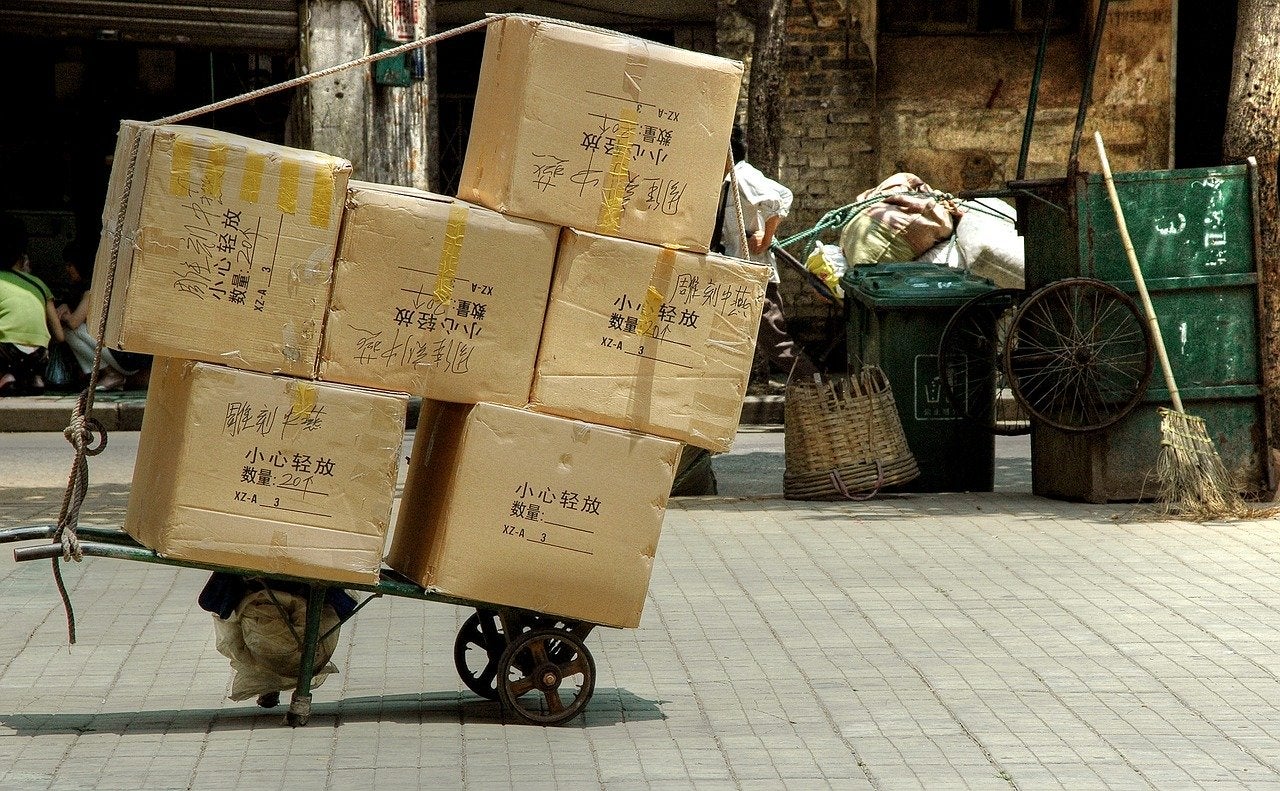
The Covid-19 or coronavirus pandemic has had a considerable impact on the packaging industry. Self-isolation rules have resulted in short supply and event cancellations, and supply chains are looking to move sourcing away from China following manufacturing and production disruptions. Packaging Gateway examines some of the key issues facing the industry.
Stocks have been in danger of running short
One of the main concerns in the industry comes from workers having to self-isolate, especially in China where many packaging companies rely on manufacturing facilities. This month, Australian supermarket heads warned that packaging supplies were in danger of being hard to obtain due to factory closures in China.

Discover B2B Marketing That Performs
Combine business intelligence and editorial excellence to reach engaged professionals across 36 leading media platforms.
PA Consulting manufacturing and supply chain expert Tim Lawrence told Packaging Gateway: “The first shock in the supply chain will be caused by the scarcity of supply. Companies should immediately review their inventory levels and policies – and ask suppliers to do the same.”
Procter and Gamble (P&G) chief operating officer Jon Moeller said last month: “We access 387 suppliers in China that ship to use globally more than 9,000 different materials, impacting approximately 17,600 different finished product items. Each of these suppliers faces their own challenges in resuming operations.”
Packaging specialist site Lumi last week stated: “All of the factories in the Lumi network are operational; however, some factories in China are experiencing one to three-week delays as they catch up the backlog from Lunar New Year and the coronavirus closures.”
Self-isolation and quarantining as a result of Covid-19 also means that important global packaging events, such as Germany-based Interpak and Amsterdam-based Plastics Recycling Show Europe, have been cancelled or postponed.

US Tariffs are shifting - will you react or anticipate?
Don’t let policy changes catch you off guard. Stay proactive with real-time data and expert analysis.
By GlobalDataRelocating supply chains
Covid-19 has caused considerable disruptions for companies and, as a result, many are looking to relocate away from China.
A survey conducted by the Institute for Supply Management (ISM) between 22 February and 5 March revealed that production in China fell to an all-time low in February, with manufacturers in China reporting a 50% operating capacity with 56% of normal staff. The majority of respondents also reported experiencing order delays.
Lawrence told Packaging Gateway: “Assuming the controls put in place by the Chinese government work and the outbreak does not spread significantly, then Hubei province will begin to open up again and supply will be resumed. In preparation for this, companies should work with suppliers to ensure that they are among the first to start to receive deliveries.”
“It is important to avoid clustering of suppliers in one region and particularly around similar supply chains. This will be increasingly critical as the world becomes more volatile through climate change and other man-made impacts. That makes it important to look beyond selecting on lowest price only and understand the overall value and the risks in the supply chain.”
Sustainability causes health concerns
Sustainability has been a big trend so far this year and many companies have switched to more eco-friendly alternatives, such as replacing plastic materials and removing single-use packaging. Covid-19, however, has caused concern over the health and safety of products that do not use what was previously seen as unnecessary packaging.
UK-based market research agency Walnut Unlimited head of packaging and design Chris Peach told Packaging Gateway: “With empty shelves in our supermarkets, Covid-19 has already had an impact on our shopping habits. In recent months, we’ve seen a trend of removing unnecessary packaging, particularly in fresh produce where plastic has been removed and fruit and veg is sold unwrapped.
“As we become increasingly more aware of germs being transmitted through surfaces, will we begin to ask ourselves who else has touched that banana or apple, and will we shun these unwrapped products in favour of the relative safety and security offered by a plastic wrap?”
Global coffee-chain Starbucks banned reusable cups amid the outbreak amid the outbreak at the beginning of this month and organisations, such as the Plastics Industry Association, have been addressing the advantages of plastic.
In a statement released last month, Plastics Industry Association president and CEO Tony Radoszewski said: “Plastics have been the material of choice in the medical field for decades and we live healthier, longer, and better because of these materials. The global plastics industry stands ready to assist authorities and public health advocates in making sure our materials and products are on the frontline of combating the spread of coronavirus.”





